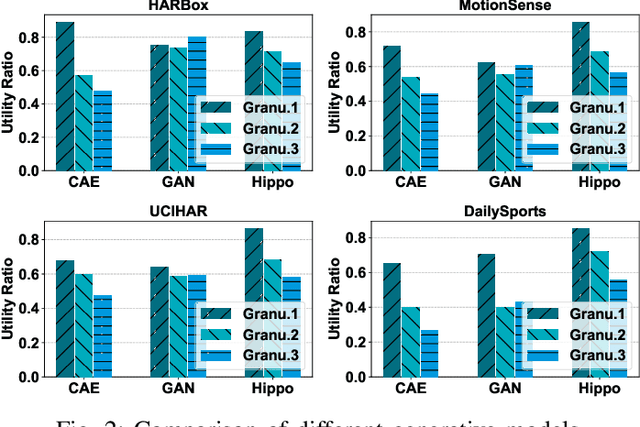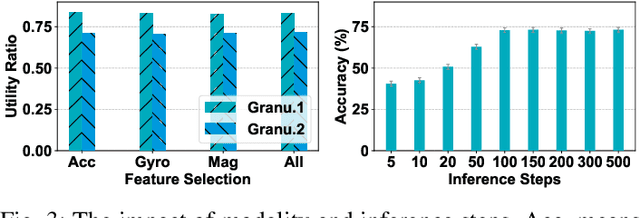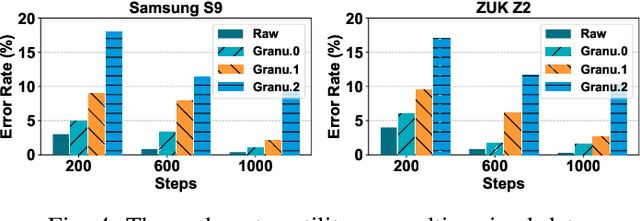Protecting Activity Sensing Data Privacy Using Hierarchical Information Dissociation
Paper and Code
Sep 04, 2024



Smartphones and wearable devices have been integrated into our daily lives, offering personalized services. However, many apps become overprivileged as their collected sensing data contains unnecessary sensitive information. For example, mobile sensing data could reveal private attributes (e.g., gender and age) and unintended sensitive features (e.g., hand gestures when entering passwords). To prevent sensitive information leakage, existing methods must obtain private labels and users need to specify privacy policies. However, they only achieve limited control over information disclosure. In this work, we present Hippo to dissociate hierarchical information including private metadata and multi-grained activity information from the sensing data. Hippo achieves fine-grained control over the disclosure of sensitive information without requiring private labels. Specifically, we design a latent guidance-based diffusion model, which generates multi-grained versions of raw sensor data conditioned on hierarchical latent activity features. Hippo enables users to control the disclosure of sensitive information in sensing data, ensuring their privacy while preserving the necessary features to meet the utility requirements of applications. Hippo is the first unified model that achieves two goals: perturbing the sensitive attributes and controlling the disclosure of sensitive information in mobile sensing data. Extensive experiments show that Hippo can anonymize personal attributes and transform activity information at various resolutions across different types of sensing data.
 Add to Chrome
Add to Chrome Add to Firefox
Add to Firefox Add to Edge
Add to Edge